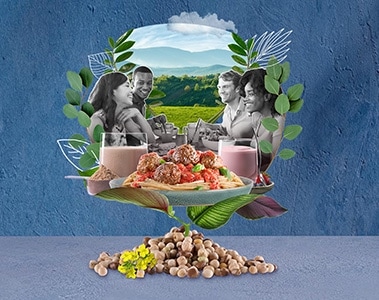
Keep the flavor, hold the alcohol
10 Jan 2024
"Have you ever tried a beer made with pine needles? Even though it’s way too early to be thinking about Christmas, pine-flavored beer was just one of the out-of-the-box brewing innovations I came across recently.-Theo Wijsman"
In the past few years we’ve seen the emergence of a brave new brewing world – and a major reason for that is the continued rise of craft beer.
To put that into perspective, before taking up my current role working for DSM, I spent 30 years working for one of the world’s largest beer brands, with responsibility for quality. As you would expect, a huge part of my job was about maintaining product consistency and ensuring there was no deviation from batch-to-batch based on a closely guarded recipe. The idea of experimenting with the recipe was something we would never consider.
I fast forward to 2018 and see a brewing landscape where virtually the opposite is true. As the landscape gets ever more competitive, brewers are experimenting to unprecedented degrees, incorporating literally anything and everything to attract consumers - from grapefruit to pumpkins, to (yes), pine needles. And it’s all based on one key attribute: taste.
Working at DSM this is something I see every day. Our purpose is to create a brighter, healthier, and more sustainable future for everyone through brewing enzymes that help our customers build a sustainable, profitable future for the entire industry.
But it was also confirmed recently when we conducted a consumer insight report asking craft beer drinkers across the world for their in-depth opinions. More than half of those we surveyed said that they were drinking more craft beer than two years ago (especially the 18-30 demographic). And the biggest reason that these people continue to drink craft beer is…the taste.
In fact, some 75% of those we surveyed across the world stated that the special taste was their number one criteria for drinking craft beer. Even better news for brewers is that 81% of our craft beer drinkers said that they liked to discover new types and tastes of beer. There’s clearly a huge opportunity for innovation in the craft brewing industry. The big question is how do you get it right, and ensure that your beer passes the taste test?
You may be surprised to learn that a new generation of brewing enzymes is helping brewers to create new taste experiences. Here are just three ways that it’s happening today.
The quest for taste innovation is leading to the use of many exotic, locally produced brewing grains, including maize, rice, sorghum and cassava. Not only are these good for the taste buds but they also benefit the environment, given the substantial carbon footprint of transporting traditional barley malt across continents.By adding small amounts of brewing enzymes to your grain bill you can use a wider variety of grains to enhance flavor and really differentiate on taste.
This taste enhancement extends beyond the grain bill to other key ingredients now being used in craft beer - like fruits, and especially tropical fruits.
Our enzymes break down the cell walls of fruits to release greater flavor. Not only does this create a unique tasting beer but it delivers a valuable cost advantage through more efficient downstream processing – not least because you need to purchase far less whole fruits to make the beer.
Mouthfeel is of course a critical part of the taste experience – which is another area where brewing enzymes can help craft brewers create a product with a wide range of attenuation levels, from high to low (and everywhere in between).
Specifically, our amylolytic enzymes have the unique ability to control the amount of fermentable sugars that are obtained from the starch of the brewing grain. What this means for brewers is freedom and flexibility to create products across the full mouthfeel spectrum, from light beers to fully bodied beers.
The consumer has spoken. They are ready and willing to experiment with new tastes, flavors and sensations. Now, using brewing enzymes, the industry can do the same.
DSM’s Brewers Clarex® enables gluten-reduced and gluten-free beers made from gluten-containing raw materials such as wheat, barley, and rye.
A DSM survey shows the craft beer trend is not slowing down. Read more>
Our experts are always ready to help you
07 July 2019

10 Jan 2024


